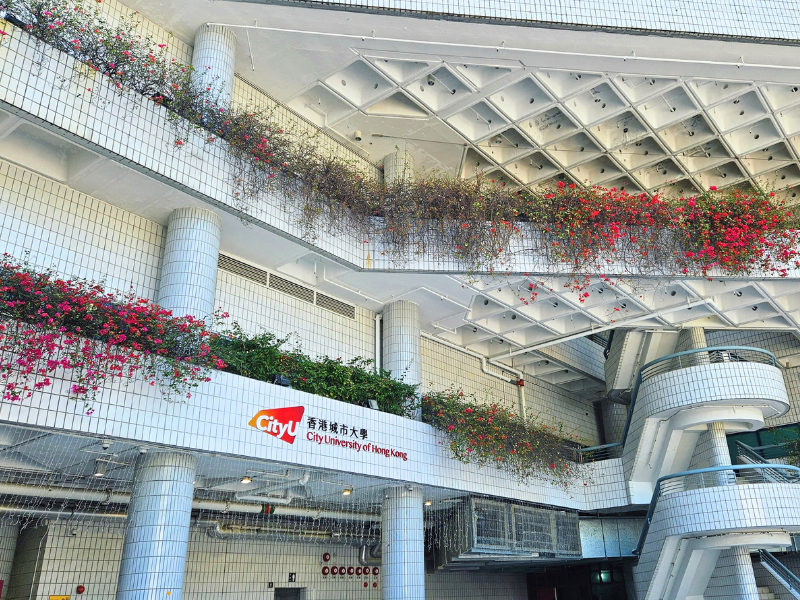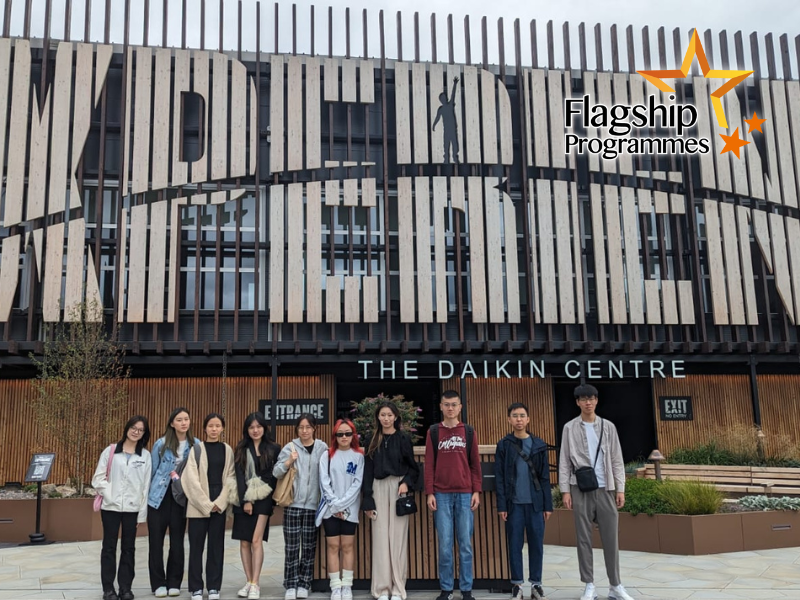BEng Computer and Data Engineering

1573A
Local Places:
163 (For First Year and Advanced Standing I Entries; Tentative)* and
12 (For Senior Year Entry; Tentative)
Non-Local Places
(For Overall Direct Applications):
Around 400
2.5 Years (For Senior Year Entry)
BSc, PhD, CityU HK, SMIEEE
+852 3442 7779 (Phone)
+852 3442 0562 (Fax)
* for JUPAS and non-JUPAS admissions
Are you fascinated by data's power to revolutionize technology? Our BEng in Computer and Data Engineering programme prepares you to master core AI technologies like computer system, data engineering, deep learning, and generative AI. As demand for data professional’s soars, our graduates are positioned for exciting careers across industries.
Whether you are passionate about developing AI applications, designing software systems, or using data analytics for business decisions, this programme provides the foundation you need. Join our community of innovators shaping the future through data and AI. Embrace the AI era and unlock endless possibilities with a degree in Computer and Data Engineering.
Entrance Requirements for Direct/Non-JUPAS Applicants
To be considered for admission, you must satisfy the General Entrance Requirements and have studied an engineering-related or a science-related discipline at a high school or post-secondary institution.
For senior-year (Advanced Standing II) admission, applicants are normally expected to have completed an Associate Degree/Higher Diploma with a cumulative grade point average (CGPA) of ≥3.0 or an equivalent overall mark, or a credit award in an engineering-related or science-related discipline.
For details of the programme curriculum structure, please visit the ‘Undergraduate Catalogue’.
This major provides a strong foundation in computer systems, emphasizing data-driven technologies and AI. Covering software and hardware design, data science, machine learning, and IoT security, graduates gain proficiency in diverse areas including AI systems, data analytics, and cloud computing. This comprehensive skill set prepares students for various engineering roles, postgraduate studies, and lifelong learning in this rapidly evolving field.
本專業課程為電腦系統工程學習奠定堅實的基礎。課程涵蓋軟硬件設計、數據科學、機器學習和物聯網安全,使畢業生在人工智能系統、數據分析和雲計算等多個領域具備專業技能。這種全面的技能組合為學生在這個快速發展的領域中能勝任各種工程角色、研究生學習和終身學習作好準備。
Our programme offers a comprehensive curriculum covering computer and data engineering, emphasizing data-driven technologies and AI. Key focus areas include:
1. Computer Science Fundamentals
2. Data and AI Engineering
3. Computer Hardware
4. Networking and Security
5. Multimedia and Human-Computer Interaction
Core courses cover topics like Engineering Mathematics, Programming, Data Structures, Machine Learning, and Operating Systems. Final-year students can specialize in areas such as AI, Computer Vision, Cybersecurity, and Big Data Management.
The programme emphasizes practical applications and hands-on experience with cutting-edge technologies like large language models and generative AI. Graduates will be well-prepared to embrace the AI era and contribute to future technological innovations.
Given the rapid developments in computer technology and multimedia applications, graduates will find ample opportunities in IT products and services, and data services. Potential employers include computer product development companies, software and system solutions companies, banks, finance and insurance companies and the Hong Kong SAR government.
Placement Schemes
In collaboration with industry, the Department aims to equip students early with real work experience before graduation through different placement schemes. We have Professional Internship Programme (PIP) of different durations (one-semester/two-semester/one-year), and two local and overseas summer placement opportunities namely Industrial Attachment Scheme (IAS) and Overseas Internship Scheme (OIS).
International Exchange and Summer Exchange Programme
Uplifting students' global outreach and international competitiveness through student exchange is one of the Department's goals. Since 2015, around 380 students have been sent out to top universities in Australia, Belgium, Canada, Czech Republic, Denmark, Finland, France, Germany, Italy, Japan, Korea, mainland China, Netherlands, New Zealand, Spain, Sweden, Taiwan, the UK and the USA for semester-long exchange and summer exchange. Unfortunately, due to COVID, the exchange programmes have been affected for years.
Student Learning Support Scheme
Student learning is always the Department's top priority, facilitated by the long-established Student Tutoring Scheme. The scheme aims to nurture good learning skills in our students, particularly during their first and second year with EE. Outstanding senior year students are selected to coach students in their studies through regular meetings and out-of-classroom time. The Scheme has successfully created a positive learning ambience among peers and has been well received among students.
Each year, approximately 60 scholarships worth over HK$1 million are granted to students in the Department of Electrical Engineering. Click here for more information.
Over the years, CityUHK Electrical Engineering students have won many top prizes in various international, regional and local competitions and award schemes. Click here for more information.
This Department offers four majors in Computer and Data Engineering, Electronic and Electrical Engineering, Information Engineering, and Microelectronics Engineering. All the long-established majors have been accredited by the Hong Kong Institution of Engineers (HKIE), while the design of Microelectronics Engineering curriculum is intended to obtain accreditation by HKIE. Based on the Washington Accord, graduates will receive reciprocal recognition from equivalent bodies in Australia, Bangladesh, Canada, China, Chinese Taipei, Costa Rica, Hong Kong-China, India, Indonesia, Ireland, Japan, Korea, Malaysia, Mexico, New Zealand, Pakistan, Philippines, Peru, Russia, Singapore, South Africa, Sri Lanka, Turkey, the UK and the US.
- Largest EE department among local universities with 46 professors.
- Ranked 20th worldwide and 1st in Hong Kong by subject in Electrical and Electronic Engineering (U.S. News Best Global Universities Rankings 2023); 11th worldwide and 1st in Hong Kong by subject in Electrical Engineering (Performance Ranking of Scientific Papers for World Universities, National Taiwan University Ranking 2023).
- Six EE professors have been awarded the Teaching Excellence Award for eight times by the University.
- A caring department emphasizing students' well-roundedness apart from their technical know-how through ample co-curricular activities.
- Offering four undergraduate programmes, two taught master's programmes and two research degree programmes (currently around 1,400 students in total).
- With the support from the Ministry of Science and Technology, State Key Laboratory of Terahertz and Millimeter Waves established in 2008 is the first such laboratory in engineering discipline in Hong Kong.
- Laboratory space about 5,000 sq. meters.
+852 3442 7792 (Phone)
+852 3442 0562 (Fax)
cde@ee.cityu.edu.hk
On a selective basis
- November 2024 to July 2025
- Group and individual interviews
- English and Chinese





